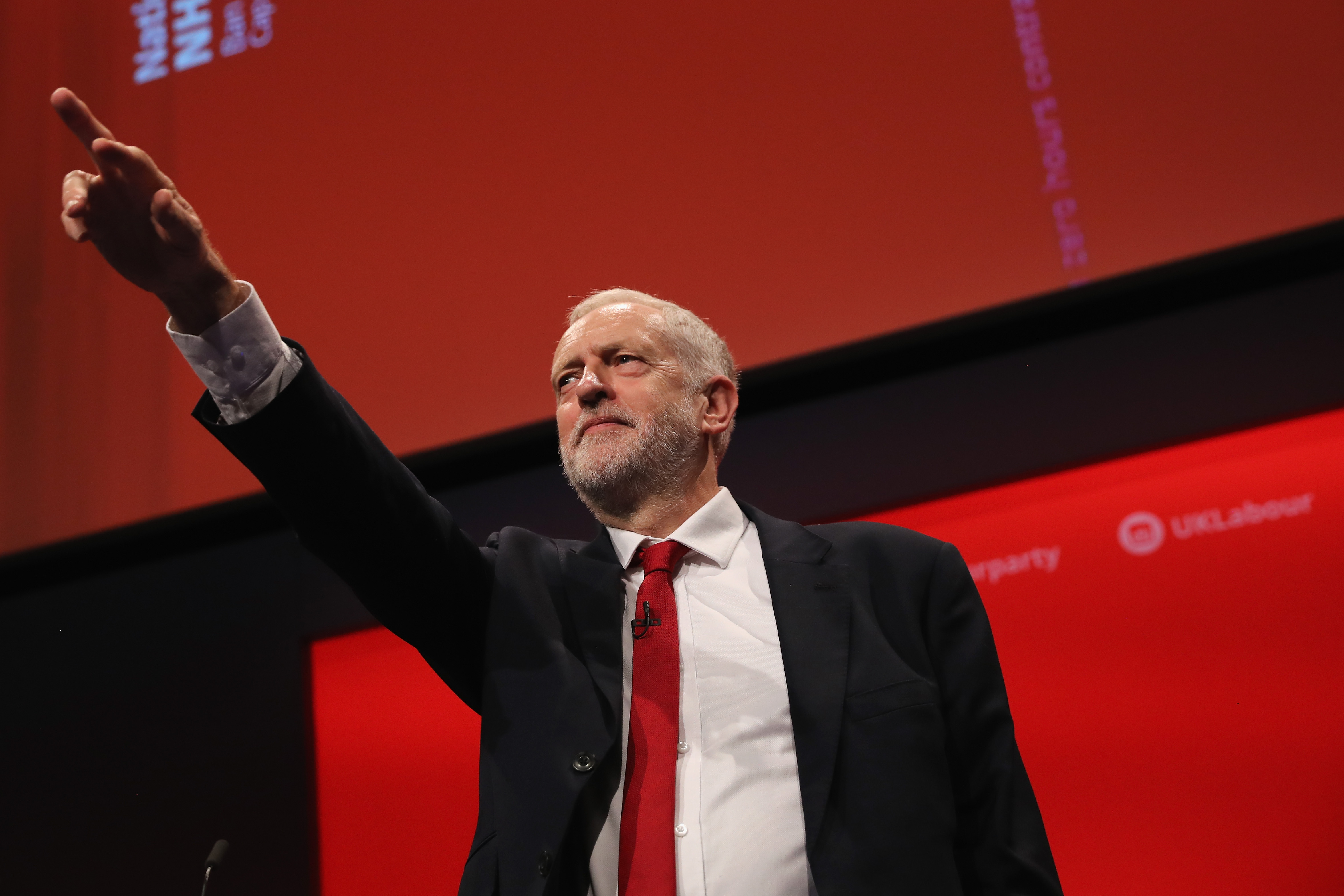Corbyn hero worshipped by delegates as he sets out policies of the newly radical Labour party

The election that was supposed to obliterate Labour’s Corbyn Project was Mr Corbyn’s salvation. No wonder Mr Corbyn spent nearly 25 minutes at the top of his reliving that encounter with the voters.
Ecstatic doesn’t really do justice to the delegates’ reaction to their hero. The Party had played a thumping superhero video before he came on the stage, definitely not the work of Ken Loach. The crowd here didn’t need that sort of pepping. He had to wait 2 minutes at the podium for the cheering and chanting to stop.
At times Mr Corbyn couldn’t get more than a couple of sentences out without a burst of applause.
He rattled off Labour’s election statistics and mocked the Tories’ less than strong and stable conduct in office since the election. He said the election had proved that the centre of British politics had moved decisively towards his political outlook. He wasn’t about undoing the cuts since 2008, he was about a completely new economic and political settlement.
On policy he said the party would come up with new radical proposals on rent controls. Aides said Ontario, New York and and Berlin proved this could work. He mocked regeneration projects that cleanse whole areas of poorer residents in the name of improvement and said the party would promise that residents on an estate would be balloted before a redevlopement and people who live on an estate must get a home on the same site on the same terms if its redeveloped.
He said capitalism faced a crisis of legitimacy, a phrase that might frighten the heeby jeebies out of some so he took care to point out he was quoting a recent leader in the “Financial Times.” But the reshaping of capitalism would be far-reaching with the public sector taking on “a new and dynamic role.”
There was a sharp attack on President Trump, who under one of the original plans talked about in Whitehall might’ve been visiting the UK quite soon.
If I’d had a decibel meter I suspect one of the biggest and loudest of many ovations in the speech was for supporting the rights of Palestinians.
Another was for Diane Abbott, who he said had suffered grotesque abuse throughout the election campaign. Delegates sang happy birthday to the Shadow Home Secretary.
He glided over past internal discontent saying that “I hope we have left our own divisions behind.” Beyond the regular chanting of his name that peppered his appearances at fringe events in Brighton the other sound memory of this week is the silence of his opponents. Some of them gently probe the possibilities of relaxing the policy on Brexit but most have decided to shut up and let him get on with it or to proclaim themselves born again Corbynites who’ve seenthe wrong of their ways.
Big business did sniff around this conference, hastily put back into diaries it was crossed out of until the 40% Labour share of the vote in June. And big business is currently prioritising getting what it wants out of Brexit over any panic about John McDonnell’s economic revolution. You got some bad reaction from the employers’ groups this week, not least to the PFI nationalisation plans. But it wasn’t that many gears higher than the squeals over Ed Miliband’s much less ambitious plans to cap energy prices.
Big company bosses who were pro-Remain and fear a Hard Brexit are looking to Labour to help them pressurise the government and, in private, they often praise what they believe Labour’s Shadow Brexit Secretary Keir Starmer has done.
The latest instalment in that process came with Sir Keir’s article in The Times on Monday in which staying in the Customs Union after the transition was posited as a feasible end destination.
So as a weakened Theresa May mud wrestles with Brexit after a referendum the newly radicalised Labour Party has had a bit more space to develop and to sell its “giant correction” to economic orthodoxy.
